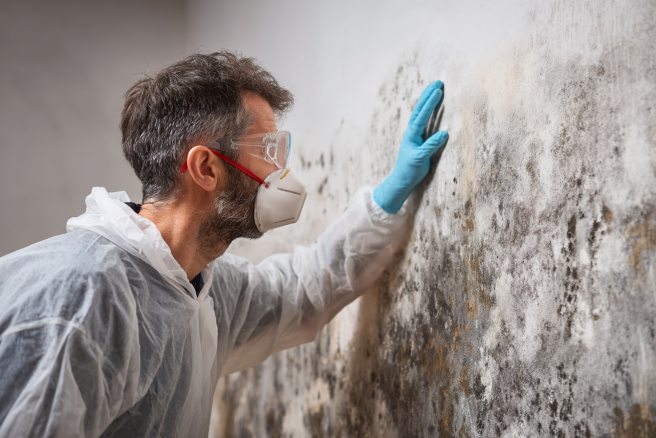 Florida is famous for its sunshine, beaches, and booming tourism industry. But behind the palm trees and ocean views lies one of the state’s toughest ongoing challenges: mold.
Florida is famous for its sunshine, beaches, and booming tourism industry. But behind the palm trees and ocean views lies one of the state’s toughest ongoing challenges: mold.
For homeowners, mold is a nuisance. For businesses—especially restaurants, hotels, and condo associations—it can be devastating. From health risks to financial losses, mold infestations disrupt daily operations, drive away customers, and damage property value.
In Florida’s humid, storm-prone climate, commercial mold removal isn’t just maintenance—it’s survival.
Why Florida Businesses Are Especially Vulnerable
Florida’s climate creates conditions where mold thrives year-round:
-
High humidity: Average levels between 70–90% make moisture control difficult.
-
Tropical storms and hurricanes: Roof leaks, flooding, and power outages leave buildings damp.
-
Air conditioning dependence: When HVAC systems fail, humidity spikes indoors.
-
Proximity to water: Oceanfront properties and lakeside developments face constant moisture exposure.
For businesses, the stakes are higher. Mold problems aren’t limited to hidden corners—they directly impact revenue and reputation.
The Risks of Mold for Restaurants
Restaurants in Florida walk a fine line. They’re heavily regulated for health and sanitation, yet kitchens naturally create moist, warm environments perfect for mold.
Where Mold Appears in Restaurants
-
Behind walls near dishwashing stations.
-
Around HVAC vents blowing into dining areas.
-
On walk-in cooler seals and damp flooring.
-
In storage rooms with poor ventilation.
Consequences
-
Health code violations leading to closures or fines.
-
Bad reviews when customers notice odors or visible mold.
-
Food contamination risks that threaten customer safety.
For restaurant owners, professional mold remediation isn’t just about cleanup—it’s about protecting their license and livelihood.
The Risks of Mold for Hotels
Florida hotels are a cornerstone of the state’s economy. But with constant guest turnover, high occupancy rates, and a focus on guest comfort, hotels are uniquely vulnerable to mold.
Problem Areas in Hotels
-
Bathrooms and guest rooms with poor ventilation.
-
Carpeting in humid environments.
-
Conference rooms and ballrooms with limited airflow.
-
HVAC systems that spread spores through multiple floors.
Consequences
-
Guest complaints and refund demands for musty odors or visible mold.
-
Damaged reputation on review sites like TripAdvisor and Google.
-
Costly renovations when entire floors need remediation.
In the competitive Florida hospitality industry, even a hint of mold can drive guests to book elsewhere.
The Risks of Mold for Condo Associations
Condo associations face some of the toughest mold challenges in Florida. Shared walls, common areas, and multi-unit HVAC systems mean a mold problem in one unit can quickly spread.
Common Condo Mold Issues
-
Leaks from one unit affecting multiple floors.
-
Roof damage from hurricanes exposing entire buildings.
-
Poorly maintained common HVAC systems spreading spores.
-
Disputes between unit owners and associations over responsibility.
Consequences
-
Legal liability if associations fail to address mold complaints.
-
Property value declines when buyers discover infestations.
-
Expensive repairs that impact HOA budgets and assessments.
Condo boards must be proactive, hiring professional mold removal services that understand large-scale remediation and insurance navigation.
The Mold Removal Process for Florida Businesses
Commercial mold remediation follows a strict, multi-step process designed to minimize downtime:
-
Inspection & Testing: Identifying the scope of mold, including hidden infestations in walls and HVAC systems.
-
Containment: Isolating affected areas with plastic barriers and negative air machines.
-
Removal: Disposing of contaminated drywall, carpet, insulation, or furnishings.
-
Cleaning: Using HEPA vacuums and antimicrobial treatments to kill mold.
-
Air Filtration: Scrubbing spores from the air to protect employees and guests.
-
Restoration: Rebuilding damaged areas while ensuring prevention strategies are in place.
Professional crews often work overnight or in phases to reduce disruption to business operations.
Prevention Strategies for Florida Businesses
Preventing mold is more cost-effective than removing it. Florida businesses can reduce risks by:
-
Maintaining HVAC systems for proper airflow and humidity control.
-
Installing dehumidifiers in high-moisture areas.
-
Sealing roofs, windows, and doors ahead of hurricane season.
-
Inspecting after storms for leaks or water intrusion.
-
Training staff to recognize early signs of mold.
-
Scheduling regular inspections with local mold remediation professionals.
Eco-Friendly Solutions for Businesses
With customers increasingly eco-conscious, Florida businesses often prefer green remediation methods. Options include:
-
Botanical-based cleaners safe for restaurants and hotels.
-
Moisture management systems instead of heavy chemical use.
-
HEPA filtration and UV treatments for HVAC systems.
-
Non-toxic coatings to prevent future growth.
These methods protect not only people but also Florida’s sensitive coastal ecosystems.
Insurance and Liability
One of the biggest challenges for Florida businesses is insurance coverage for mold. Many policies limit or exclude mold damage, especially if caused by delayed maintenance.
Best practices include:
-
Reviewing policies annually for mold coverage.
-
Documenting maintenance and inspections.
-
Acting immediately after water damage to prevent exclusions.
-
Working with remediation companies familiar with Florida insurance claims.
For hotels and condo associations, legal liability can extend to tenants and guests, making swift action even more critical.
Final Thoughts
Mold is more than an inconvenience for Florida businesses—it’s a threat to health, revenue, and reputation. Restaurants risk health code closures, hotels risk guest satisfaction, and condo associations risk lawsuits and declining property values.
But with professional remediation, preventive strategies, and eco-friendly solutions, businesses can stay one step ahead. In Florida’s humid, storm-prone climate, mold may be inevitable—but its impact doesn’t have to be.
For business owners, the choice is clear: protect your property, your people, and your reputation by taking mold seriously. Because in the Sunshine State, the only thing guests and customers should notice is the beauty—not the musty smell of mold.
Comments closed